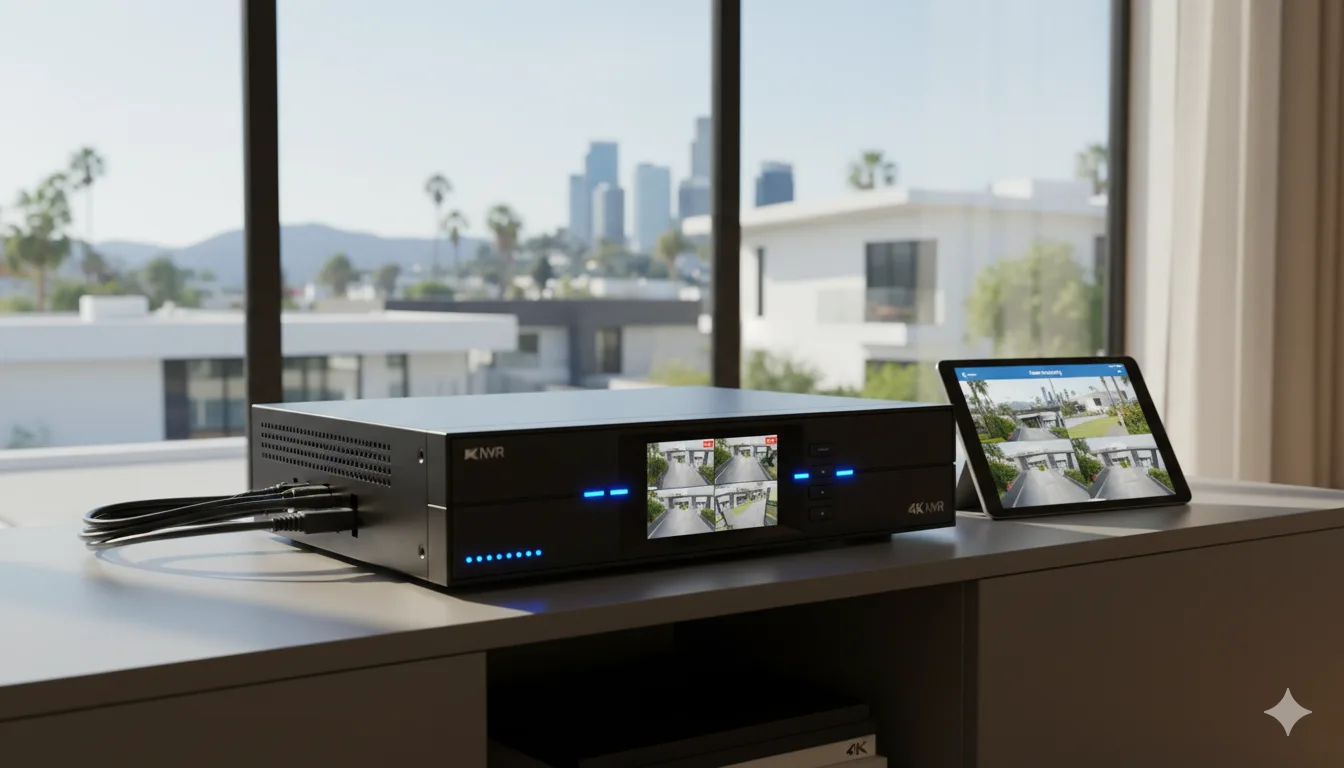A Digital Video Recorder (DVR) is a commonly used device for video recording and transmission. The DVR system has simplified the video recording, storing, and accessing from the CCTV cameras. DVR devices allow you to store the video footage sent directly from the CCTV cameras. The effortless video storage and playback options are more appealing benefits that you can get after having a good quality DVR system. This blog post contains all the relevant information about DVR.
What is DVR?
DVR is a wonderful device that records video to your local storage device. It amazingly records video in a digital format and later stores the footage on an SD card, a USB drive, or other storage devices. Regarding home security, DVRs allow you to record video from security cameras. DVR also allows you to save and access recorded videos later. You can easily connect a DVR to your analog camera using coaxial cables. One of the great benefits of using DVR for your property security is the ability to search recordings of events by date and time.
How does DVR work?
The working of DVR is very simple and smooth. It works by transforming analog videos into digital data for storage. DVRs can work using PC-based and Standalone systems. The property owners widely used the PC-based DVRs where they simply install DVR card. On the other hand, a Standalone DVR system does not need any PC. You only need a monitor to hook up to the system. One best thing about DVRs is the number of cameras that you want to hook up. You can attach any number of cameras with your DVRs according to your budget and needs. The entire process of working with DVR is as follows:
Signal Capture:
DVR receives analog signals from the security cameras and other sources of digital sources, i.e. televisions or other video input devices.
Analog-to-Digital Conversion:
First DVD receives signals and then converts these signals into digital format using an analog-to-digital converter. The conversion process of digital format involves sampling the analog signal regularly and assigning digital values to represent the video content.
Compression:
The digital video data is compressed using various encoding techniques to reduce file size while retaining visual quality. Compression methods like MPEG (Moving Picture Experts Group) are commonly used in DVRs to store video data efficiently.
Storage:
The compressed digital video data is stored on a hard drive or other storage media within the DVR. This storage allows for the retention of recorded video content for future playback.
Playback and Access:
You can access the stored digital video content through the DVR’s interface. You can play back recorded videos, pause, rewind, fast-forward, or delete recordings as needed.
Decoding:
When playback is initiated, the stored digital video data is retrieved from the storage media and decoded back into a format that can be displayed on a screen or monitor. This decoding process reconstructs the compressed data into a viewable video format.
Pros of DVR
Nowadays, DVRs are widely used by property owners. It has revolutionized safety measures and has become an integral part of property security. The pros and cons of using DVR are as follows:
- DVRs are best to offer improved safety of properties in Los Angeles. They help users to monitor their properties and also provide them sufficient evidence in case of any incident. The flexibility of later viewing also makes DVR the best choice for property surveillance.
- You can easily schedule recordings, pause live TV, and record non-stop videos.
- DVRs are more affordable than traditional analog surveillance systems.
- DVR systems can be easily expanded to accommodate the additional cameras.
- You can increase the storage capacity of DVRS by using compression techniques to store footage.
Cons of DVR
- DVRs record footage of lower quality.
- DVRs have a limited option of storage and allow you to record videos within limited storage space. You need to opt for additional storage solutions in case of storing large recordings.
- DVRs work only when the electricity power is smooth. If there is accidental electricity failure, then it may disrupt recording if you don’t have any power backup.
- For setting up and configuring a DVR system, you may need technical expertise.
DVR Hardware Features:
- You can mount DVRs in a server rack.
- You can add multiple source inputs, i.e. coaxial and optical.
- DVRS has an external monitor output.
DVR Software Features:
- DVRs have multi-channel audio recordings and archived footage options.
- You can set alarms, events, and time search functions.
- You can set a resolution of the recording for any specific event.
Role of DVR for Property Surveillance:
DVRs play a vital role in improving the security of properties in Los Angeles. These DVRs help to monitor and record video footage from analog security cameras. DVRs allow you to playback and store videos from installed analog cameras. The DVR’s conversion of incoming analog signals into digital format for storage and management makes it possible for property owners to enjoy improved security measures for their homes and businesses.
Get DVR system installation services from us:
If you are planning to enhance the security of your property in Los Angeles, then investing in a quality DVR is great. It will make your property security more efficient and enable you to monitor and record all the surrounding happenings. First Digital Surveillance is a reliable name in Los Angeles for installing professional DVR systems for your commercial and residential properties.
As a leading security provider in Los Angeles, we offer exceptional security solutions according to your budget. We always prioritize our client’s opinion and offer them tailored solutions. Our experienced technical staff can visit your property and help you to decide the exact number of cameras for your property. We offer quick and customized solutions in Los Angeles and the surrounding areas. Get in touch with us today to make your properties more secure to live and enjoy.




